Sage Francis is one of the most influential indie hip-hop artists and is a successful slam poet thanks to his hard hitting lyrics. Not only was he the first rapper to sign to punk label Epitaph but he has since launched his own record company, Strange Famous Records. He spoke to Danielle Barge about his feelings on these matters before his gig in Leeds.
[like_to_read][/like_to_read]S] You’ve gone from being a kid from Providence, Rhode Island, who liked rap to one of the pioneers of indie hip-hop. How do you feel about your career so far?
SF] “I’m obviously very proud of my whole journey, that I made it through it and it worked out reasonably well for me. I’ve seen a lot of people fall off along the way, not be able to punch their weight through the obstacles. For me to be able to do that and still have my wits about me and be able to still create, who knows how long that can go for, but it’s been a good minute so I’m happy. Happy enough.”
S] How do you feel about the evolution of indie hip-hop? Given how much you have had a part of that.
SF] “Indie hip-hop represents an infinite amount of styles, indie is more of the process. Who’s funding you? Who’s overlooking what you do? And most people who involve themselves are underground or independent so there’s no one telling them what they need to say or how they need to say it. So there’s an endless amount of styles of that type of hip-hop but the more popular styles, and some of them that I popularised, I can’t say are really all that interesting to me, which is crazy to say I guess because I should be like ‘oh yeah, I did that way back when…’. They’re almost like bastardised versions of what me and other people I came up with have done. There’s a lack of authenticity and a lack of sincerity from people who I hear doing stuff that they know has an audience so they’re like, ‘I’m going to do this style…’ but you can’t just do that superficially. It has to come from a very honest and experienced place. A place of experience per se.
That said, a lot of people who like me like the other people I don’t like, so I’m very careful not to name names most of the time because I don’t want to alienate my own fans. I just, personally speaking, I’m not into it. I keep a distance and I try to keep my blood pressure low by not listening to too much bullshit, whether it’s mainstream or independent as far as hip-hop is related.”
S] Some of the songs on ‘Copper Gone’ are very much based on your experiences but who are the people that inspired you most?
SF] “I feel like inspiration doesn’t necessarily come from people, it comes from your life experiences. You’re inspired by moods. You’re inspired by interactions, whether it’s with someone you’re close with or a total stranger. You can inspire yourself, you can write something and be inspired by what you just put on page and it can result in a full essay or a full song. I get asked that question often and it’s not like I look to one person or one small group of people for inspiration. I look to everything for inspiration. You have to find those, I don’t know, those very special windows, those very small windows of time where the inspiration is available and snatch it. See what resonates with you, with your creative self, and what you can make of that artistically. I’m still trying to figure that out to tell you the truth. That’s why I feel stumped whenever I’m asked that question because I’m like ‘I really don’t even know’. When you’re inspired, you don’t make so much of a mark of what inspired you, you just create at that moment. It’s almost like a dream, you can’t fully explain the dream, you don’t know exactly what happened but you just know how it made you feel afterwards.”
S] Because lyrics on albums like ‘Copper Gone’, ‘Li(f)e’ and other albums are so personal to you and your past experiences, how does it feel to revisit it every time you perform them?
SF] “The goal, honestly, I don’t know if it is healthy or not, but it is to separate myself more and more from the subject matter and to control it more and more as a tangible piece of music. There are times where I lose myself in the subject matter and I try more and more to get away from that. Because when I do ‘Make Em Purr’ it’s very tough for me to do that at first. It’s just so many parts of that song bring me to some very exact instances that are strong in my memory that fuck me up and I’m like ‘I can’t finish the song’. It’s happened a few times. I think I’ve gotten to the point now where it’s just a performance. It’s not something that I have to, like, relive every time I perform it. Same thing with Best of Times, there was a lot of times where I would do that song and kind of break down. That’s not good for a performance. I mean, sometimes I think to show that it is actually real and to give the visceral reaction to a song, to show it, to display it could be interesting but I’d rather get through the song. I’d rather perform the thing. That’s why I don’t perform a few songs because of that. If I’m never able to get beyond that point I stop performing.”
S] You’re well know for your spoken word as well as rap but what is it you can do in spoken word that you can’t do in rap? And vice versa?
SF] “When you do something in the spoken word format you are granted a bit more freedom with delivery and you let certain lines sink in more. You allow for an audience to absorb the last few words that you said before you move on. But in hip-hop, if you are rapping to a beat you’re a slave to the meter and you try to capture them more into the rhythm that you’re saying rather than the weight of the words all by themselves. Both of them have a lot of merit. Both of them come with their own strengths and their own weaknesses. I have performed both for a very long time and I like to have the option for me to decide whether something works better as a spoken word piece or over a beat. When I first started out, seeing someone do spoken word on a hip-hop stage was pretty unheard of. I had never seen it myself. I have been to a lot of hip-hop shows. It just kind of threw people off and then they realised, ‘Oh, shit, OK, I don’t have to nod my head to a beat. I can just listen to the words. Let them hit me in their own way,’ and I feel like that has improved my show overall. It just made for a better overall experience in what I do. Show the different ways in which a person can be entertained or inspired or moved. And I can dance too. There’s no limits!”
S] You’re on record of saying you were a bit apprehensive about releasing ‘Copper Gone’ through Strange Famous, having been signed to Epitaph for years. How do you feel about it now? And the progress of the label in general?
SF] “I was apprehensive because I know that Strange Famous does not have the kind of staff that Epitaph has. Epitaph is a really big company. It’s as close as you can get to a major label without them being a major label. But they have major label distribution. We don’t. So when I put out a new record I want to make sure that it’s available to all my fans, who live all over the place, and in great numbers. Yet I don’t have mainstream exposure, I don’t have the mainstream media covering anything that I do so it’s tough for me to alert people who might be interested in what I do that I have a new record out. That was my fear, not only to alert them that I have it but that they can actually get it. So yeah, I stepped into this with great trepidation and after all was said and done I was really happy that we did it the way that we did. It was a risk. It was a great risk. But now that I look back on it in retrospect I’m like I think we did as good if not better than a company that has 20 times the staff as Strange Famous Records and I think that’s because I’ve done a bulk of the work on every record I have put out. If I am able to hire people who are totally focussed on my project and to get my stuff out there to the people who need it, that’s all we need and I don’t have to split a stupid amount of money with a label who has nothing to do with me.
But that’s every artist’s concern when they work with a label. You know, work with a label, it’s a concession, you have to say ‘OK I am going to give up this but in the process I’m going to get that, which I could not get on my own.’ The thing is over the past ten years I probably could have gotten it on my own but not only was I locked into a contract for three albums but I also didn’t have the resources or the money early on to pay for the things that needed to be paid for in order for a record to pop off and for my status to be raised and for more people to find out about me. You know, the dirty, very dirty parts of the industry. The real unfortunate things that people need in order to support an artist. Like everyone was like ‘man, just keep it real, we’ll always support you,’ and it’s like but you wouldn’t even know who I was if you didn’t hear this on Punk O Rama. You know like, everything we do is in order to gain access to more people so that they can discover us. Most people don’t want to know that process and I can understand it.
Like I don’t really want to know how the baker made my pastry. I just want to eat the fucking thing and enjoy it. But I’m not going to tell the baker like ‘just love what you do man, don’t worry about it,’ like no, you have got to know how to make a good pastry and I have to know where to get it. That pastry analogy was weird, I don’t even eat pastries really, I should have made a pizza analogy.”
S] But what about some of the stuff you have done for other artists at Strange Famous Records?
SF] “Well, there’s been a few that have come in and out and there are some mainstays and we have dedicated a lot of our time, and resources, money, attention, energy to them and to the label as a whole. It has gotten to the point where, I don’t know, we probably won’t sign any new artists from here on out unless someone comes to us with a fully fleshed out project, they show that they are responsible, they are going to continue on, they know what they have to do in order for a record to succeed beyond just making some tweets and Facebook posts and a few shows here and there but to fully dedicate themselves to their career and to the album.
But right now for me to focus on what we have I am totally fine with. I’m happy. You know, we have B Dolan who has been around for a long time and then we started putting out his records in 2008 and he’s toured heavy, he’s actually one of the most active artists on our roster. Hell, I don’t care if it was just me and him and, like, we’ve got Metermaids who are from New York City but both of them have careers, they have families, so I don’t expect them to go all out. But they understand they can’t do that but they can give us a full album, fully fleshed out artwork and ‘we know what you do as a label, do that, we’ll promote on our own too and we don’t expect to, like, sell 100,000 records but, you know, lets see what we can do even if we’re not able to tour’.
When people come into us it’s under different understandings of what we’re able to do due to what they’re able to do. Each artist has their own unique situation that we adhere to and work around. A lot of times I’ve actually passed on signing people because I’m like ‘I don’t think we can do as much as you need us to do for you to do well,’ and vice versa. Like sometimes I’m like ‘I don’t think we can do what you actually need us to do because I know you can do better. Like you have to find a bigger company in order to get things off the ground.’
The thing is I’m not trying to grow the label to a point where it’s like, I’m not Russell Simmons, I don’t care about the business side of stuff that much. It was a necessity for me and I worked it out to my means where I’m like ‘I can put out my own records? Good. Do I want to continue to grow the label and continue to make a whole bunch of networking decisions? No, I don’t.’ I don’t give a fuck about all that shit. I want us to have a reliable and a label of high integrity and if people search enough they know where to find the good shit. That’s what we will be.
Oh and the other thing is as far as not signing or signing people, it doesn’t matter because we will always support and host people’s music on our website if they want us to. As long as, you know, it has to pass the channels of taste but, you know, that’s another thing I say, ‘Well, we’re not going to put out your record but once you put the record out we will promote it, we will help you make it available to people, but our people. We can’t spend money to get it to all the places that we want it to be.’ We’ll see how that works out. I don’t know. Bigger labels and smaller labels have collapsed under different types of pressure.”
S] On the music on ‘Copper Gone’, you used a lot of samples from artists on your label, how did you find and decide on who you wanted to use?
SF] “About half of them are people I have worked with through the years, people who have appeared on almost every record I have put out, but I found them the same way I found the other people. People just approach me with their music and I check out their stuff and they start sending me other beats. Or sometimes we have remix contests at Strange Famous records and that’s how I find a producer who shows that they know what they are doing. Like, ‘Wow, you made this song into a whole new thing, breathed new life into it’. It gives me an indication that they have chops as far as being a producer and a beat maker is concerned. So then I just stay in touch with them, they send me music, I keep stuff that hits me correctly on file. Stuff that if it strikes a certain chord or affects a certain mood, I keep it around and then I try to find a proper place for it on our album, whether it’s this one or the next one or the next one. I keep a very large file of these beats. Then when I finally find a home for the beats I’ll hit them up and we’ll try to develop it from there. You can imagine this is a very lengthy process because there’s a lot of different producers, they work on all different types of programs and when it was all said and done I had hundreds and hundreds and hundreds of files to go through and to mix down and make everything proper and cohesive. I’m sure there’s an easier way but it’s always been my process for almost every single record. Except for the ‘Li(f)e’ album, which was produced by another guy. But also on the ‘Li(f)e’ record it was a similar process because all the bands who wrote the music on it sent me demos, so I had a large file of demos and I wrote to that music and then it was recreated in the studio. So honestly, yeah, it’s a very similar process.”
S] So you’ve achieved becoming a famous hip hop artist, you’re a well known slam poet and you’ve got your own record label. Where do you go next?
SF] “Go to movies, go to books, go to building houses and mowing lawns. Yeah, I don’t know, there’s a lot to do. I almost feel like I won’t have enough time to tackle the things I want to accomplish. But learning an instrument, learning a new language, see what kind of opportunities come from that. But yeah, film is something I love. Like doing videos for the songs on the record. It’s been a while since I started doing videos but I like being able to bring something from my head into a visual medium rather than just audio. Because my natural inclination is to do an audio representation of what I imagine and to know that there’s a way to make a visual version of it opens up a whole lot of doors, a whole lot of possibilities, but it’s a lot more money, it’s a lot more preparation and it’s a lot more facilitating between a lot of different people. For music you can almost do everything on your own but not so much with film. I have to learn how to deal with more than two people at once. That could be fun though. I want to, like, do an indie-rap film before I die and include every person I have ever worked with. Give them a certain role in the film. It’s like a Crush Groove for 2014. Although Crush Groove was like Run DMC and Beastie Boys and Fat Boys. We’re long overdue for something like that.”

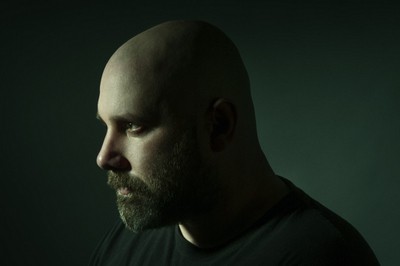
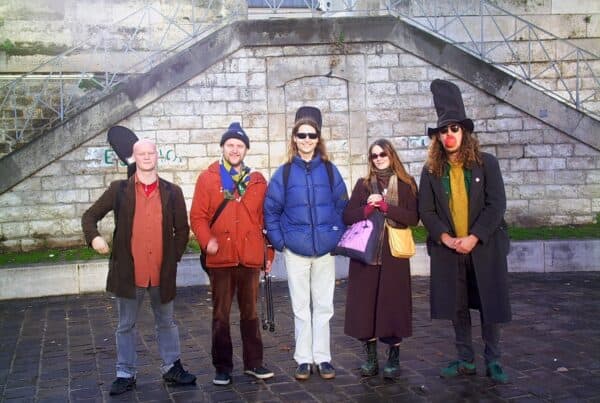
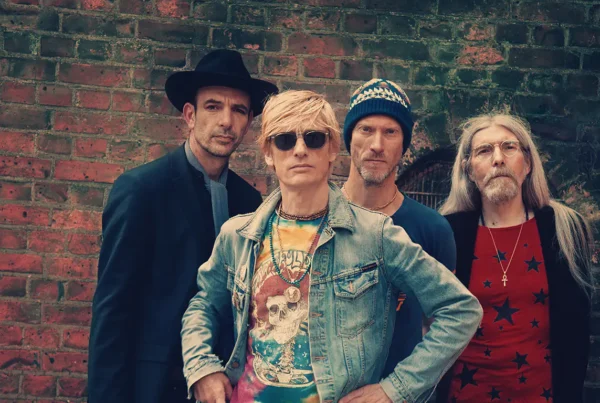
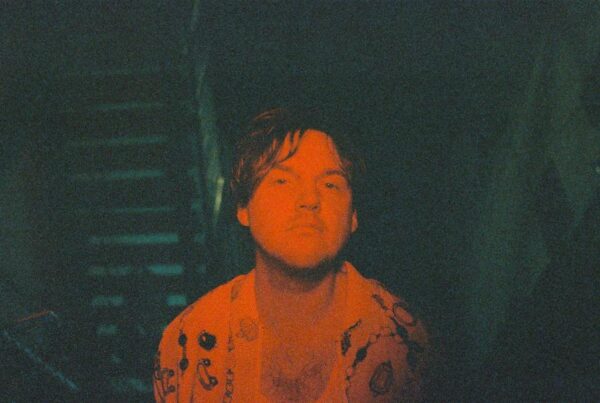
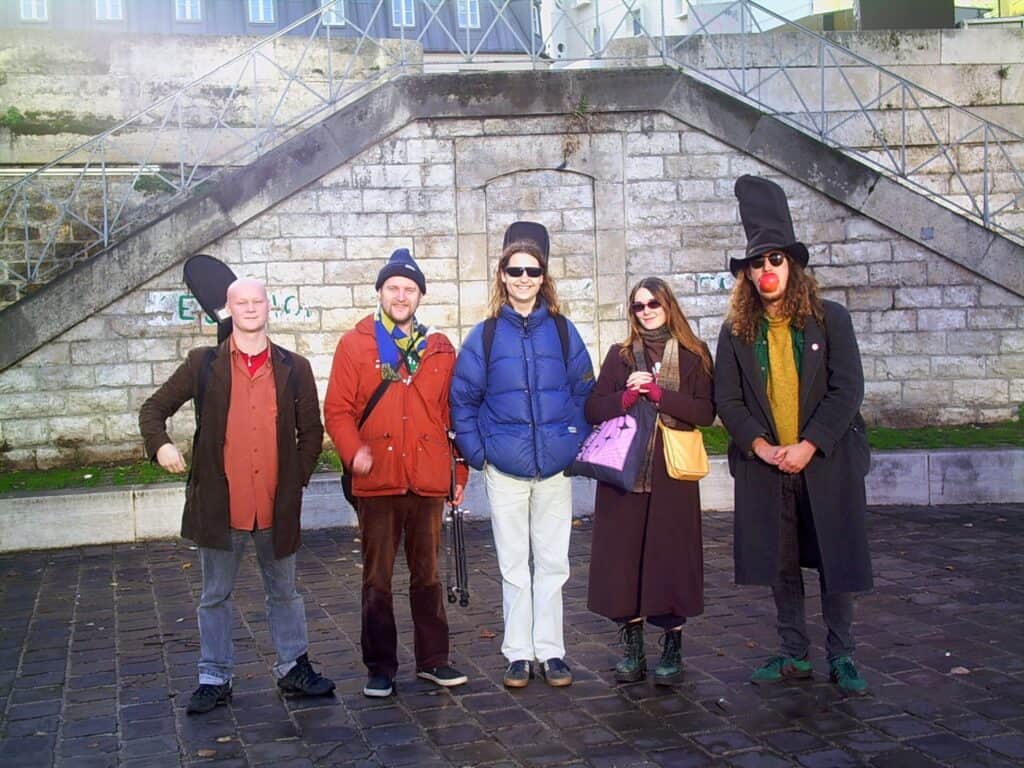
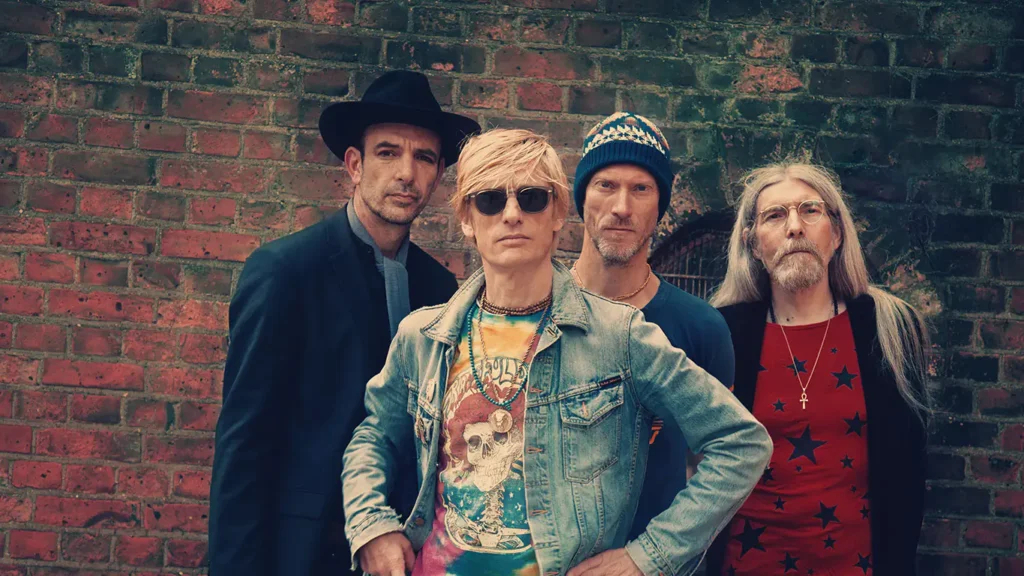
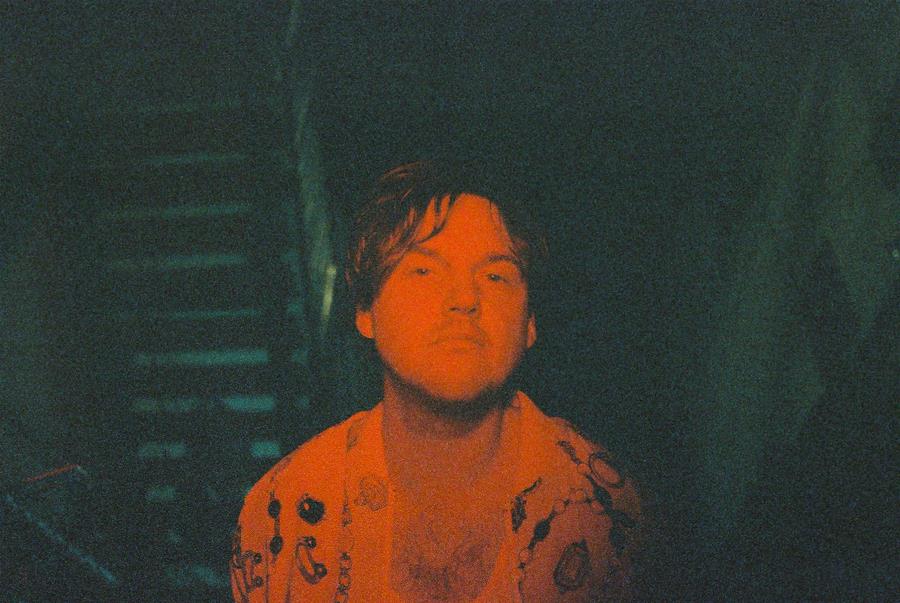
Cracking interview. I’ve just shot his Manchester show and have pictures you’d be welcome to add to this piece. You can see them on my flickr photostream – just drop me an email if you’d like to use any!